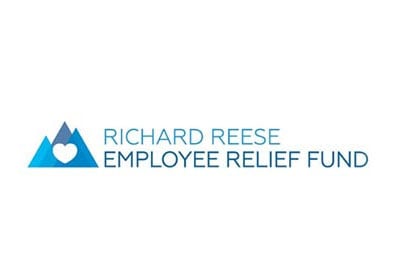Elevate the power of your work
Get a FREE consultation today!
January 17th, 2022

On September 1, 2021, as Hurricane Ida left Cranford, New Jersey, Iron Mountain driver Melvin Mangual and his family thought the worst of the storm was over. The family's vehicles had taken on water. "But rain stopped by midnight," recounts his wife, Mayra. "So, we figured it was time for all of us to go out and move the cars closer to the house and dry them out."
However, it was a short-lived respite. What the family of six - the couple plus their two adult sons, Mayra's mother, and her sister - didn't know was that a local levee had breached. The rushing waters of the Rahway River were now headed for their neighborhood, putting their home in peril.
It didn't take long for the flood currents to wreak havoc. "Water seeped into the house from every corner," says Melvin. "We had about an hour to grab everything we could." But with too little time to prepare, the Manguals couldn't secure the winter clothes, luggage, and household files stored in their unfinished basement.
At the flood's peak, water rose to the basement's ceiling and continued up, leaving a foot of murky water on the first floor. The family carried what they could to the second floor for safekeeping. As for their cars, two were totaled.
As the waters receded, the Manguals assessed the damage and considered the challenge ahead. “It was depressing at first,” says Melvin. “But if my kids were still little it would have been even harder to do.”Melvin and his brother kicked off the recovery by pumping out the remaining water. In the days following, as they filed their insurance claim for rebuilding the soggy mess remaining, they realized that leaving the house during the reconstruction was not an option: Since the Manguals weren’t sure how much their insurance company would pay on their claim, and they didn’t want to risk incurring debt.“We decided it was better for us all to stay put,” says Mayra. And that was a wise decision. “The flood insurance provides coverage for the first floor, the garage, and only specific items in the basement,” explains Mayra. Those included the electric panel, hot water heater, and washer and dryer. But they were on their own to replace anything else in the basement.
When Melvin’s manager dropped dinner off for the family, he suggested that they apply for a grant from Iron Mountain’s Richard Reese Employee Relief Fund. The fund established in 2005 to help Mountaineers affected by Hurricane Katrina, now offers relief for those affected by floods, fires, and other events that can put a household in crisis.
“We didn’t even know the program existed,” says Melvin. He also admits that even after he heard about the program, he put the paperwork aside for a few days. “I was just overwhelmed by everything I needed to do, and it was hard to focus,” he recalls.
However, once the Manguals did apply for assistance, Mayra was impressed by the quick response “They answered in a couple of days.” In fact, the grant came before they received any FEMA or homeowner’s insurance payout.
Mayra was ready to put the cash to work immediately towards the rebuild. But when she first spoke with contractors, she was dismayed by how long they said it would take – many saying the work would trudge along well into 2022. That’s when Mayra decided to take charge by acting as her own general contractor. She went on to find and hire all the people the family needed to rebuild their home.
The result: The house was gutted from its foundation to 2.5 feet into the first floor. It was a massive undertaking. But despite those initial time estimates, Mayra got all essential repairs done by November 3 – two months after the flood. “Some of our neighbors are still living in hotels,” says Mayra.
Looking back on their experience, Mayra feels grateful that her family made it through the calamity intact. “It was scary but thank God everything worked out.” She’s also thankful for what Iron Mountain as well as their family and friends did to help. “Every little bit we received, from food to money, made a difference when we needed it most.”
As for the fund, 16 years after its founding, it’s providing more financial support than ever to employees impacted by natural disasters and other events, worldwide. In 2020, it provided more than $1.2M USD in support to more than 4,500 employees globally, many of them experiencing hardship because of the pandemic. What’s more, it’s funded primarily by fellow Iron Mountain employees. They can either make one-time contributions or contribute via payroll deductions.
Learn more about our corporate responsibility initiatives and programs
Get a FREE consultation today!